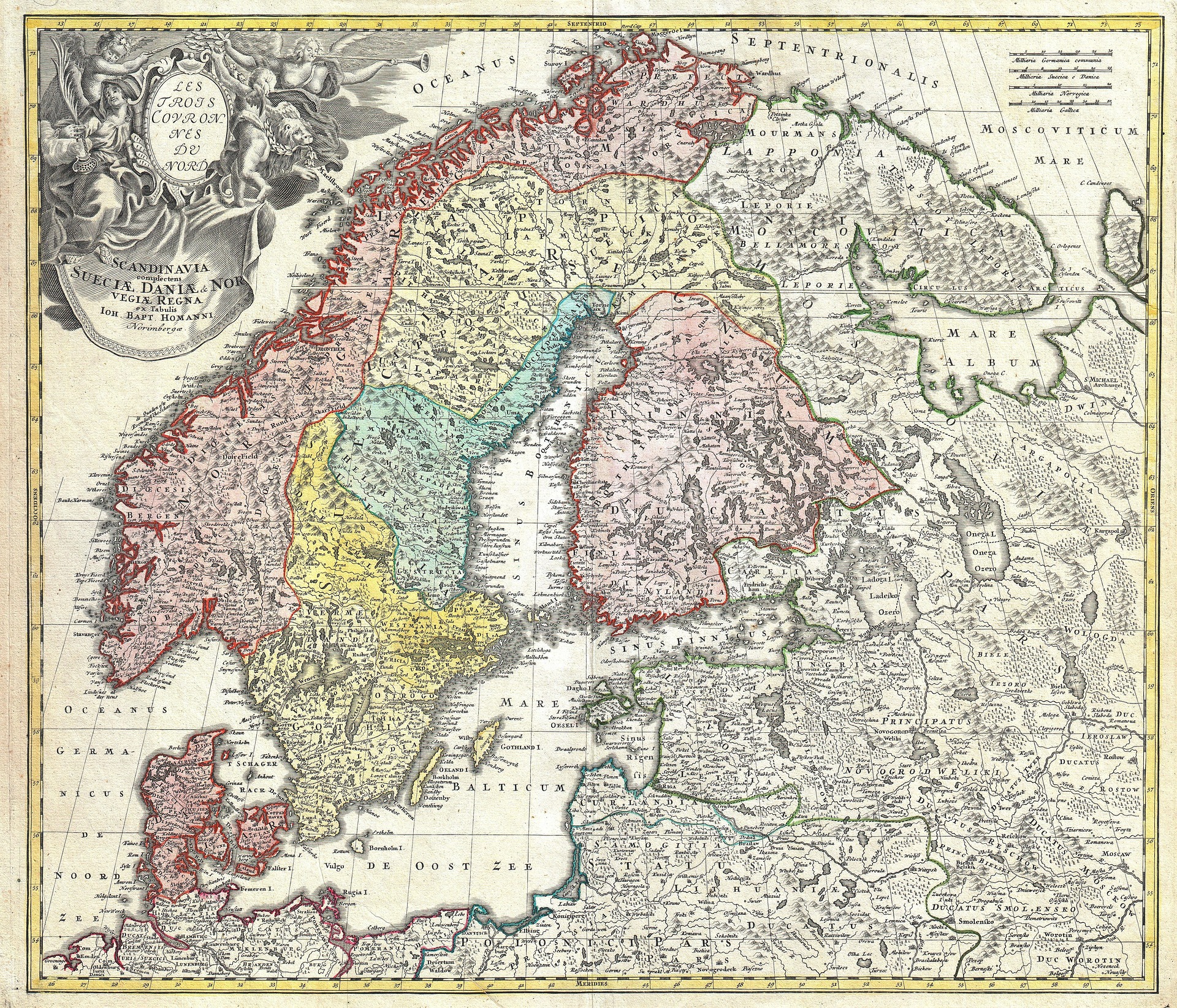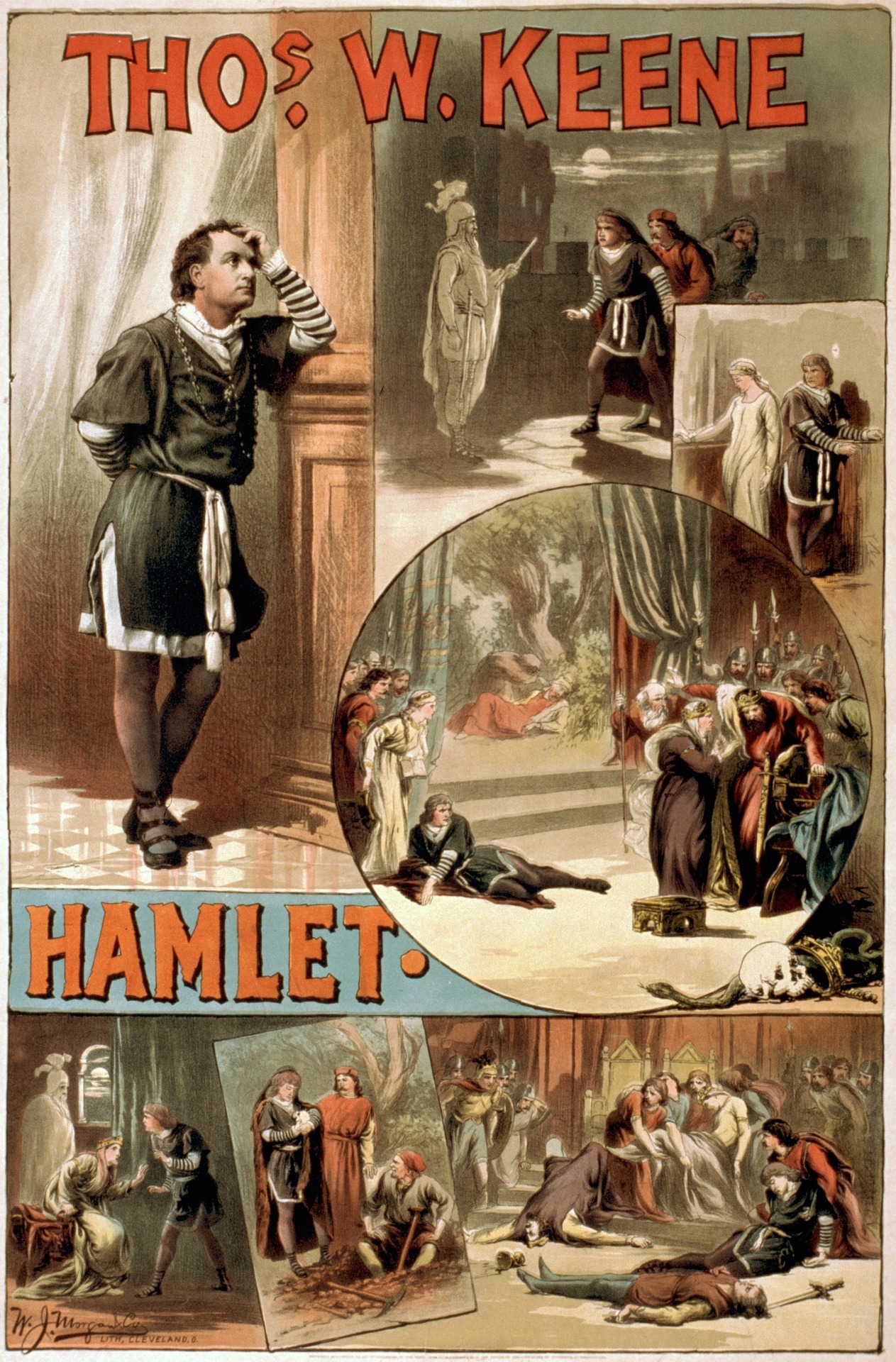Gertrude and Claudius: Characters
Gertrude and Claudius is broken up into three distinct parts that tell the story of Gertrude's marriage to old Hamlet, her affair with her husband's brother, and her later marriage to Claudius. The characters' names change throughout the novel to reflect variations of the Danish revenge story.
| Character | Description |
| Gerutha/Geruthe/Gertrude | At the beginning of the novel, Gertrude is 16 years old. Her father marries her off to Hamlet the elder, with whom she conceives Hamlet the younger. Gertrude is unhappy in her marriage and cannot be close with her husband or son. At the age of 47, Gertrude has an affair with her husband's brother, Claudius, whom she has come to love over many years. Gertrude and Claudius later marry. |
| Feng/Fengon/Claudius | The brother of Hamlet the elder, Claudius falls in love with Gertrude at a young age. He leaves the country for years to escape his feelings for his brother's wife. Ultimately, Claudius begins a passionate affair with Gertrude and murders the elder Hamlet, who threatens their relationship. Claudius wants to get closer to young Hamlet and groom him to take control of Denmark after Claudius's death. |
| Horwendil/Horvendile/Hamlet (the elder) | Gertrude's first husband and Claudius's brother, Hamlet the elder is a reserved, brutish man. Hamlet is oblivious to his wife's unhappiness in their marriage, and she often feels neglected by him. When Hamlet discovers Gertrude and Claudius's affair, he threatens their relationship and physical safety. Claudius and Polonius murder Hamlet and make it look like he died of natural causes. |
| Amleth/Hamblet/Hamlet (the younger) | The son of Hamlet the elder and Gertrude, Hamlet the younger is only a minor character in Updike's novel. As a child, Hamlet cannot connect with his mother and grows cold and distant from her as he ages. Hamlet is very close with his father, and Gertrude often feels like an outsider in their family. Hamlet the younger spends much of the novel away at school and getting in trouble with his only friend, the rebellious Yorik. |
| Corambus/Corambis/Polonius | First Rorik's advisor, then old Hamlet's, and finally Claudius's, Polonius treats Gertrude as though she were his daughter. Polonius allows Gertrude and Claudius to use his home to continue their affair. When old Hamlet discovers the affair and threatens Polonius, Polonius conspires with Claudius to kill the king. |
| Rorik/Rodericke | Gertrude's father, Rorik raises Gertrude largely by himself and dotes on his daughter. Rorik believes old Hamlet will be a good successor, so he has Gertrude and Hamlet marry despite the lack of love between the two. |
Gertrude and Claudius Summary
The characters' names change in each part of the novel to reflect the evolution of the traditional Danish revenge tale. In part one, the spelling of the characters' names comes from Saxo Grammaticus's 12th-century Historiae Danicae (1514) text. Part two is inspired by Francois de Belleforest's Histoires Tragiques (1572). Finally, the spelling of the names in part three comes from Shakespeare's Hamlet.
Part One
In the bloody medieval world of the Vikings, the King of Denmark (Rorik) marries off his sixteen-year-old daughter (Gerutha/Gertrude) to Horwendil the Jute (old Hamlet). Horwendil is a warrior with very little interest in domestic life, but the people respect him and Rorik thinks he will make a suitable successor. Although Gerutha does not love Horwendil and wants more for herself than to be Horwendil's trophy wife, she eventually agrees to the marriage to fulfill her duties as princess.
Horwendil is not unkind to Gerutha, but he is oblivious to her emotional needs. On their wedding night, Gerutha strips in front of the fire only to discover Horwendil has fallen asleep. They do not consummate their marriage until the next morning. Gerutha feels snubbed and rejected for many years because of this incident.

Fig. 2: Horwendil is depicted as a warrior king who cannot satisfy Gerutha's emotional needs.
Despite her ambivalent feelings toward her husband, Gerutha does her best to be a good wife and princess. She soon becomes pregnant. Unfortunately, Rorik dies before her son is born. Horwendil is crowned king, and when the baby is born, he names the child Amleth (young Hamlet) after a military victory. Gerutha's resentment for her husband only grows; she wants to name their child after her father, but Horwendil overrules her.
Amleth is sickly and distant from his mother, even as a baby. Her breastmilk is sour and he cries constantly. In his youth, Amleth is prone to both illness and arguments. Arguing with everyone he sees, Amleth's only friend is the disreputable jester, Yorik.
Hamlet famously talks to Yorick's skull in Act V of Hamlet. The phrase "Alas poor Yorick! I knew him, Horatio" and the image of Hamlet holding a human skull are some of the most iconic moments in Hamlet.
Amleth and his father grow closer as Amleth and his mother grow further apart. She is left feeling like an outsider in her own family. Gerutha yearns to have more children, but she cannot conceive again.
Horwendil's brother, Feng (Claudius), returns from years of traveling the Holy Roman Empire. Feng's confident, easygoing demeanor quickly draws Gerutha in, and the two become inseparable. They tell one another stories, talk about their past, and discuss their dreams for the future. For the first time, Gerutha finally feels understood and wanted. To Feng's dismay, he finds himself infatuated with his brother's wife. Not wanting to hurt Horwendil, Feng leaves Denmark to prevent himself from acting on his feelings. Amleth leaves home a year later to further his studies.
Part Two
Over a decade goes by before Fengon returns to Denmark. Geruthe, now 47, argues with Horvendile over their son's future. Geruthe wants Hamblet to marry Ophelia, but Horvendile believes Ophelia to be too dim-witted. Hamblet, for his part, is still at school and rarely home.
When Fengon and Geruthe reunite, the sexual tension that once existed between them is still there. Fengon declares his love and reveals the real reason why he left Denmark. Geruthe is taken aback, but she soon realizes she loves him too. She goes to Corambis, the King's counselor, and asks for his help.
Geruthe convinces Corambis to allow her access to his cottage, away from the eyes of the castle. There, she and Fengon begin a passionate love affair. Geruthe feels everything she never had with Horvendile when she takes Fengon as her lover. At first, Horvendile is completely ignorant, but after months of secret meetings in Corambis's cottage, he learns of the affair.

Fig. 3: Geruthe and Fengon sneak to Corambis's cottage to be alone.
Horvendile confronts Fengon and threatens to separate him from Geruthe and harm them. Horvendile tells Fengon he will be forced to wander the earth apart from Geruthe, who will remain in Denmark as Horvendile's wife. Horvendile also threatens Corambis's life and position.
Fengon goes to Corambis, and together the two men plot to poison Horvendile. After killing him, they make it look like he died from natural causes while sleeping.
Part Three
Old Hamlet has been dead for only a month, but Claudius is poised to take control of Denmark. Claudius convinces Gertrude to marry him, despite her fear that it is too early. To Gertrude's dismay, Claudius also demands Hamlet finally return from school and rule Denmark with them as a family. Gertrude reveals that she is scared of Hamlet and his quiet anger.
After the wedding has passed and Hamlet has returned home, Claudius naively thinks to himself that he has gotten away with the murder and life will be happy for him and his new family. However, Claudius and Gertrude hear rumors of old Hamlet's ghost appearing, positioning the novel to end at Act I, scene ii of Shakespeare's Hamlet.
Gertrude and Claudius Analysis
Updike based Gertrude and Claudius on the classic revenge story in Danish literature. The first record of this story comes from the 12th century CE in Saxo Grammaticus's Historiae Danicae. The story was re-recorded several hundred years later in Francois de Belleforest's Histoires Tragiques. Shakespeare's Hamlet, the most famous record of this story, was inspired by the writers that came before him. As Gertrude and Claudius evolves with the tales in each part, their changing names reflect the change in Denmark's social identity.
Historiae Danicae was first written by Danish historian Saxo Grammaticus sometime in the 12th century. It consists of 16 books and covers much of Denmark's early history. Only the third and fourth books center around Amleth, who inspired Shakespeare's character Hamlet. In this medieval story, Amleth's father is killed by Amleth's uncle, who then marries Amleth's mother. Unlike Hamlet, Amleth is eventually able to secure his place on the Danish throne and then travels to Britain, where he marries a Britannian princess. Amleth's father-in-law plots his demise.
Centuries later, Francois de Belleforest translated parts of Saxo's books into French in Belleforest's 1572 work Histoires Tragiques (1572). This version features the ghost of King Hamlet and introduces Hamlet as a depressed, melancholy character. Geruth, Hamlet's mother, openly enters into an adulterous relationship with Fengon, Hamlet's uncle. The spelling of Hamblet was included in an anonymous English translation of Belleforest's work, published in 1608.
Shakespeare's Hamlet fleshes out the characters of Ophelia and Polonius/Corambis, who were previously unnamed and unconnected. Hamlet also introduces Rosencrantz and Guildenstern as the king's escorts, Laertes as Ophelia's brother, and Horatio as Hamlet's closest confidant.
The first part, featuring Gerutha, Horwendil, Feng, and Amleth, is set in the medieval world of the Vikings. Horwendil is chosen as Gerutha's husband, not because he is a king or has royal blood, but because he killed the Norwegian king, Denmark's biggest rival. In fact, as the narrator states, he is
...a beefy warrior in every way suitable, if Jutes could ever suit in marriage a Zealand maiden born and reared in the royal castle of Elsinore." (Part One).
There is a clear social divide between Gerutha and her future husband, but the marriage is a purely tactical one. Because Gerutha is a woman, she has no say over her betrothed. Gerutha marries the man her father chooses for her based on his propensity for violence alone. Gerutha has no voice in her marriage, her child's upbringing, or even the foundation of her life.
Part two sees a slightly more modern Denmark and slightly more modern characters. Geruthe talks back to her husband (even if he has the ultimate say) and develops a relationship with Fengon. Even though she knows her affair would have steep consequences if discovered, Geruthe finally begins to make choices for herself anyway. At the same time, Denmark is becoming increasingly Christianized. The role of the king is said to be dictated by God, and Christian sensibilities temper the brutish ways of the Vikings.

Fig. 4: Denmark becomes increasingly civilized, modernized, and Christianized.
By part three, Denmark and the characters have been almost entirely modernized. Each character is fully formed and unique, with agency and autonomy over their lives. Gertrude talks openly with Claudius and influences his decisions as king. Claudius, for his part, is happy to embrace his untraditional role as Hamlet's stepfather and pass on the crown to Hamlet after his death. Denmark has become a Christian country—with duty, guilt, and pride all understood in terms of Christianity:
This unease, this guilt for our first father and mother's original sin, is what calls us to God, out of our unholy pride. It is the sign He has placed within us of His cosmic rule, lest we think we are the very top of the universal hierarchy." (Part Three)
Gertrude and Claudius: Relationship to Hamlet
Gertrude and Claudius is positioned as the prequel to William Shakespeare's (1564-1616) Hamlet. Updike's novel ends at the close of Act I, scene ii in Shakespeare's drama. While Claudius and Gertrude are the antagonists of Hamlet, they are given a much more sympathetic light in Updike's novel.
Updike's novel begins about 30 years before Hamlet, when Gertrude is only 16. Gertrude and Claudius presents an intimate glimpse into Gertrude's character that is not offered in the Shakespearean account. Instead of an opportunistic adulteress, Gertrude is presented as a neglected wife who loses her sense of self in her marriage to old Hamlet. Her relationship with Claudius is built over the years as the two try to stay away from one another but cannot control their passion and connection.

Figure 1: Gertrude and Claudius is a prequel to Shakespeare's Hamlet.
The circumstances surrounding old Hamlet's death also differ between the two tales. In Hamlet, Claudius kills old Hamlet and marries Gertrude to steal the Danish throne. In Gertrude and Claudius, however, the defense of his love and life is Claudius's primary factor in killing his brother. Claudius's biggest fear is that old Hamlet will tear Claudius and Gertrude apart. While Hamlet suggests Gertrude may have been an accomplice in her husband's murder, in Updike's novel, she is entirely unaware of Claudius's crimes.
The other significant difference between Gertrude and Claudius and Hamlet is Claudius's relationship with Hamlet. In Gertrude and Claudius, Claudius wants to get closer to the young Hamlet after old Hamlet's death. Claudius believes he has gotten away with his crime and wants to groom Hamlet to succeed him as a proper Danish prince. Gertrude, not Claudius, wants to keep Hamlet away, believing him to be a threat. In Hamlet, however, Claudius schemes to get Hamlet out of the castle and killed to avoid the threat to his throne.
Gertrude and Claudius Quotes
The most important quotes in Gertrude and Claudius examine the theme of female oppression, which Gertrude can escape only through her adulterous relationship with Claudius.
...no woman wants to be a mere piece of furniture, to be bartered for and then sat upon." (Part One)
Gerutha/Gertrude says this quote when her father tells her she is to marry Horwendil/Hamlet the elder. Even as a 16-year-old, Gerutha yearns to have a meaningful life with autonomy and agency. She rejects her father's choice of Horwendil because he doesn't view women as his equals, and Gerutha knows she will be little more than a trophy wife to him. This quote foreshadows Gerutha's unhappiness in her marriage and the sexism that controls life in Denmark.
For Feng to live with Gerutha beside him would be to bathe daily in the radiance from which now he must keep averting his eyes, though her afterimage burned at the back of his brain. She would turn the lead in him to gold, lift from his heart the dark Jutish stain it had taken early." (Part One)
While Hamlet positions Claudius's marriage to Gertrude as merely a means to become king, Gertrude and Claudius paints a much more sympathetic picture of passionate, life-changing love. Feng tries to stay away from Gerutha and do right by his brother, but they cannot deny their feelings for one another. While Gerutha's and Horwendil's relationship is forced and built on duty, Feng genuinely loves Gerutha and wants to see her succeed.
I was my father's daughter, and became the wife of a distracted husband and the mother of a distant son. When, tell, do I serve the person I carry within, the spirit that I cannot stop from hearing, that sought expression with my first bloody cry, burst as I was into the air from my mother's torn loins?" (Part Two)
In this quote, Geruthe expresses disdain because her very being has always belonged to the men in her life. As a woman, Geruthe is unable to serve herself or seek her own happiness. Her wants and needs have always been sacrificed to serve others. It isn't until she enters into an affair with Fengon that Geruthe finally does something for herself alone.
The era of Claudius had dawned; it would shine in Denmark's annals. He might, with moderation of his carousals, last another decade on the throne. Hamlet would be the perfect age of forty when the crown descended. He and Ophelia would have the royal heirs lined up like ducklings. Gertrude would gently fade, his saintly gray widow, into the people's remembrance... He had gotten away with it. All would be well." (Part Three)
The ending lines of the novel are ironic as readers of Shakespeare's Hamlet know Claudius's vision for the future is brought to a bloody end by Hamlet, his stepson/nephew. This quote also positions Claudius's relationship with Hamlet in a completely different light: Claudius wants to live the rest of his life peacefully with his wife and then see Hamlet as his heir. Meanwhile, unbeknownst to Claudius, Hamlet's thirst for revenge has him hell-bent on murder.
Gertrude and Claudius - Key takeaways
- Gertrude and Claudius was written by John Updike.
- The novel is a prequel to Shakespeare's Hamlet and reimagines the classic antagonists (Claudius and Gertrude) as the novel's protagonists.
- Although Gertrude is married to Claudius's indomitable brother, Gertrude and Claudius can't stop themselves from falling in love.
- The main characters' names change in each of the novel's three parts, representing the evolution of Danish society in the infamous revenge story.
- The most important quotes in Gertrude and Claudius examine the theme of female oppression, which Gertrude is able to escape only through her adulterous relationship with Claudius.
Similar topics in English Literature
Related topics to American Literature
How we ensure our content is accurate and trustworthy?
At StudySmarter, we have created a learning platform that serves millions of students. Meet
the people who work hard to deliver fact based content as well as making sure it is verified.
Content Creation Process:
Lily Hulatt is a Digital Content Specialist with over three years of experience in content strategy and curriculum design. She gained her PhD in English Literature from Durham University in 2022, taught in Durham University’s English Studies Department, and has contributed to a number of publications. Lily specialises in English Literature, English Language, History, and Philosophy.
Get to know Lily
Content Quality Monitored by:
Gabriel Freitas is an AI Engineer with a solid experience in software development, machine learning algorithms, and generative AI, including large language models’ (LLMs) applications. Graduated in Electrical Engineering at the University of São Paulo, he is currently pursuing an MSc in Computer Engineering at the University of Campinas, specializing in machine learning topics. Gabriel has a strong background in software engineering and has worked on projects involving computer vision, embedded AI, and LLM applications.
Get to know Gabriel











